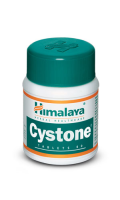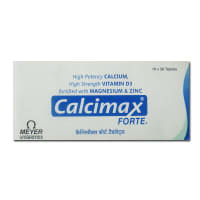USED FOR:
Bacterial infections of urinary tract
COMPOSITION:
Nitrofurantoin (100mg)
Therapeutic Uses:
urology

SAFE
It is generally safe to consume alcohol with Nitro 100mg Capsule.

PROBABLY SAFE
Nitro 100mg Capsule is probably safe to use during pregnancy.Animal studies have shown low or no adverse effect on the foetus, however, there are limited human studies. Please consult your doctor.

CAUTION
Nitro 100mg Capsule should be used with caution during lactation. Breast feeding should be held until the treatment of the mother is completed and the drug is eliminated from her body.

Nitro 100mg Capsule may make you feel dizzy, sleepy, tired, or decrease alertness. If this happens, do not drive.

CAUTION
Nitro 100mg Capsule should be used with caution in patients with kidney disease. Dose adjustment of Nitro 100mg Capsule may be needed. Please consult your doctor.Use of Nitro 100mg Capsule is not recommended in patients with severe kidney disease, who are unable to pass urine or have high creatinine levels.

CAUTION
Nitro 100mg Capsule should be used with caution in patients with liver disease. Dose adjustment of Nitro 100mg Capsule may be needed. Please consult your doctor.Use of Nitro 100mg Capsule is not recommended in patients with severe liver disease and active liver disease.
Uses of Nitro Capsule
Nitro 100mg Capsule is used in the treatment and prevention of bacterial infections of urinary tract.
How to use Nitro Capsule
Take this medicine in the dose and duration as advised by your doctor. Swallow it as a whole. Do not chew, crush or break it. Nitro 100mg Capsule is to be taken with food.
How Nitro Capsule works
Nitro 100mg Capsule is an antibiotic. It works by killing the bacteria in the urine that causes infection.
Common Nausea, Vomiting, Diarrhoea.
Expert advice for Nitro Capsule
Nitro should be taken with food to avoid nausea which is a common side effect. Patients should be informed that their urine may turn brown after taking this medicine.
Q. Is Nitro an antibiotic?
Yes, Nitro is an antibiotic and belongs to a class of medicines known as nitrofurans.
Q. Can I take Nitro for sexually transmitted infection (chlamydia)?
Nitro is specifically indicated to treat infection of the bladder, kidney, and urinary tract. It is not indicated for treating chlamydial or other sexually transmitted infections. Please consult your doctor for your medical condition before taking the drug.
Q. Can I take Nitro with omeprazole?
Nitro is not reported to interact with omeprazole. Please follow the advice of the doctor regarding their simultaneous use.
Q. Does Nitro cause constipation?
Nitro is not known to cause constipation. Please consult your doctor before taking the drug. Diarrhea has been reported to be an uncommon side effect of Nitro.
Q. Is Nitro better than trimethoprim?
Both Nitro and trimethoprim are effective against bladder, kidney, and urinary tract infections. Any of them can be better depending on the sensitivity of bacterial infection. Always consult your doctor before taking any antibiotics for your infections.
Q. Is Nitro a narcotic substance?
No, Nitro is not a narcotic substance. It is an antibiotic and belongs to a class of medicines known as nitrofurans.
Q. Does Nitro affect birth control?
Nitro can affect the action of birth control pills (oral contraceptives). As with other antibiotics, Nitro can decrease the normal bacteria in the gut, hence decreases the absorption of estrogens (a component of the birth control pills), lowering their action, causing birth control failure. Consult your doctor for alternative birth control measures if needed.
Q. Is Nitro safe?
Nitro is relatively safe if used at prescribed doses for the prescribed duration as advised by your doctor.
Q. Is Nitro useful in the treatment of a sinus infection?
No, it is not recommended to take Nitro for a sinus infection (sinusitis). Take advice from your doctor before taking any antibiotics for this problem.
Q. Can I take Nitro for a tooth infection?
No, it is not recommended to take Nitro for a tooth infection. Take advice from your doctor before taking any antibiotics for the tooth infection.
Q. Is Nitro useful in the treatment of a streptococcal throat infection?
No, it is not recommended to take Nitro for a streptococcal throat infection. Please consult your doctor for the treatment of streptococcal throat infection.
Q. Does Nitro play any role in the treatment of a yeast (fungal) infection?
Nitro has not been seen to be active against yeast (fungal) infection. Nitro is used to treat bacterial infections.
Q. Is Nitro useful in the treatment of tonsillitis?
No, it is not recommended to take Nitro for tonsillitis. Please consult your doctor for the treatment of tonsillitis.
Q. Can I take Nitro for bacterial vaginosis?
Nitro is not indicated for the treatment of bacterial vaginosis. Nitro is used to prevent and treat infections of the bladder, kidney and other parts of the urinary tract.
Q. Is Nitro useful in the treatment of a urinary tract infection (UTI)?
Yes, Nitro can be used to treat urinary tract infection (UTI) as per your doctor's advice. It should only be taken as and when recommended by your doctor.
Q. Is Nitro useful in the treatment of a sore throat?
Nitro is not recommended for treating sore throat. Nitro is used to prevent and treat infections of the bladder, kidney and other parts of the urinary tract.
Q. Can I take Nitro for kidney infection?
Yes, Nitro can be used to treat urinary tract infection (UTI) as advised by your doctor. Always consult your doctor before taking medicine for any infection.
Q. Is Nitro useful in the treatment of bronchitis?
Nitro is not recommended for use in bronchitis. Nitro is used to prevent and treat infections of the bladder, kidney and other parts of the urinary tract.
Q. Does Nitro cause yellow urine?
Yes, Nitro can cause urine to turn dark yellow or brown. It is a normal phenomenon.
Q. Does Nitro contain penicillin?
No, Nitro does not contain any penicillin.
Q. Does Nitro contain tetracycline?
No, Nitro does not contain any tetracycline.
Q. Does Nitro contain any macrolide?
No, Nitro does not contain any macrolide.
Q. Can Nitro make you feel sleepy (drowsiness)?
Nitro use may make you sleepy (drowsiness). You should not drive or operate machinery if you are affected this way until such symptoms go away.
Q. Can the use of Nitro cause diarrhea (loose stools)?
Yes, Nitro can cause diarrhea (loose stools), although it is a less common side effect. Please talk to your doctor in case you experience excessive loose stools which dehydrate you or make you feel sick or tired.
Q. Does Nitro treat Escherichia coli?
Yes, Nitro is active against Escherichia coli and is specifically indicated for the treatment of infections caused by Escherichia coli, enterococci, staphylococci, Citrobacter, Klebsiella, and Enterobacter.
Q. Can the use of Nitro affect the action of levonorgestrel?
Nitro can be taken with levonorgestrel. No drug-drug interactions have been reported between the two. However, this does not mean that interactions cannot occur. Please consult your doctor before taking the two medicines together.
Q. Can I take Nitro with amitriptyline?
No, interactions have been reported between Nitro and amitriptyline. However, interactions may occur. Please consult your doctor before taking the two medicines together.
Q. Is Nitro nephrotoxic?
Nitro has not been reported to be nephrotoxic. However, your urine may become dark yellow or brown in color. This is quite normal and not a reason to stop taking the medicine. However, it is to be used with caution in patients with decreased renal function and only when advised by the doctor.
Q. Can I take Nitro with hydrocodone?
No, interactions have been reported between Nitro and hydrocodone. However, interactions may occur. Please consult your doctor before taking the two medicines together.
Q. Is Nitro a sulfa drug?
No, Nitro is not a sulfa drug. Nitro is an antibiotic and belongs to a class of medicines known as nitrofurans.
Q. Is Nitro a macrolide?
No, Nitro is not a macrolide. Nitro is an antibiotic and belongs to a class of medicines known as nitrofurans.
Q. Can I take Nitro with amoxicillin?
Nitro can be taken with amoxicillin. No drug-drug interactions have been reported between the two. However, this does not mean that interactions cannot occur. Please consult your doctor before taking the two medicines together.
Q. Can I take Nitro with metronidazole?
Nitro can be taken with metronidazole. No drug-drug interactions have been reported between the two. However, this does not mean that interactions cannot occur. Please consult your doctor before taking the two medicines together.
Q. Can I take Nitro with ibuprofen?
Nitro can be taken with ibuprofen. No drug-drug interactions have been reported between the two. However, this does not mean that interactions cannot occur. Please consult your doctor before taking the two medicines together.
Q. Can I take Nitro with milk?
Yes, Nitro can be taken with milk. Nitro should be taken at meal times with food or milk. This will help to avoid stomach upset and also to help the absorption of Nitro.
Q. Can I take Nitro with phenazopyridine?
Nitro can be taken with phenazopyridine as no drug-drug interactions have been reported between the two. However, this does not mean that interactions cannot occur. Please consult your doctor before taking the two medicines together.
Q. Can I take Nitro with paracetamol (acetaminophen)?
Nitro can be taken with paracetamol (acetaminophen) as no drug-drug interactions have been clinically observed between the two. However, interactions may occur. Please consult your doctor before taking the two medicines together.
Q. Can I take Nitro with trimethoprim?
Nitro can be taken with trimethoprim. No drug-drug interactions have been reported between the two. However, interactions may occur. Please consult your doctor before taking the two medicines together.
Alkem Laboratories Ltd
₹7.35/Tablet Out of stock


 Nitro 100mg Capsule
Nitro 100mg Capsule  Bookmark
Bookmark




















